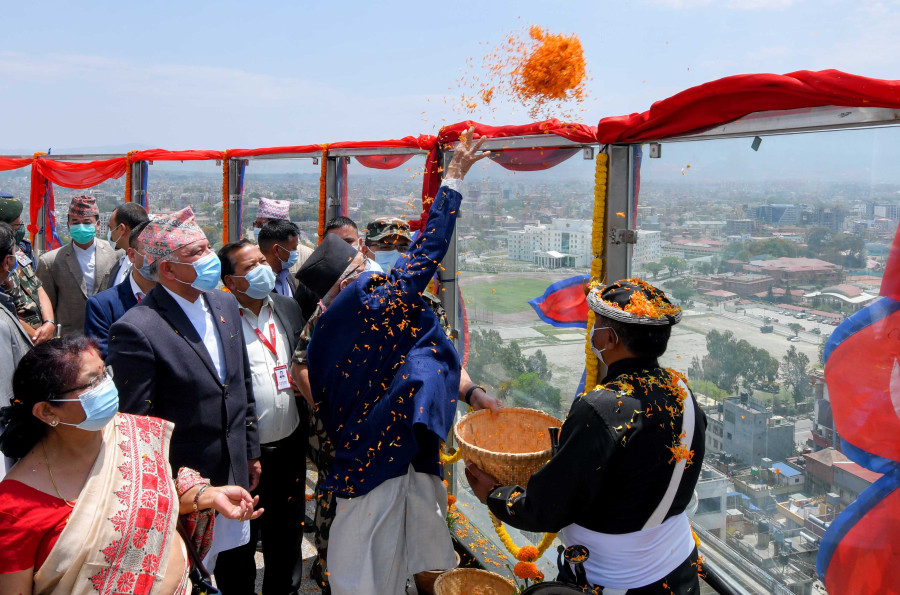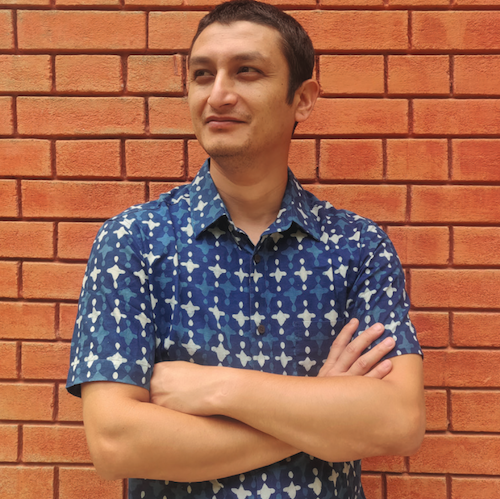Columns
Losing trust in the republic
In our country’s darkest hour, when citizens have no recourse to oxygen and a hospital bed, our state has disappeared.
Amish Raj Mulmi
To get a sense of how schizophrenically the Oli government has handled the second wave of the Covid-19 pandemic, we only need to look at the prime minister’s twin international media appearances within as many days.
On Saturday, KP Sharma Oli told CNN the situation was ‘under control’. He threw the Nepali people under the bus, claiming it was their ‘negligence’ that resulted in the second wave. Then he admitted that there were ‘some mistakes from the political side’.
On Monday, even as he lost the trust vote in Parliament, he wrote in The Guardian, ‘The number of infections is straining the healthcare system; it has become tough to provide patients with the hospital beds that they need.’
Much has already been written about Oli’s criminal neglect of the health emergency all around us, including by this commentator, so harping on it once again is an exercise in futility. Many have also noted the utter lack of regard shown by the political opposition to the second wave and their naked lust for power while citizens are gasping for oxygen and dying from the lack of it. With Monday’s trust vote, the country has fallen into further disarray. A black hole of misgovernance and instability stares us in the face, and there is a feeling of helplessness all around. If hospitals cannot be supplied oxygen, is there anything left to say?
It has been repeated several times that a pandemic of this magnitude often amplifies the schisms within a society. That stands true for Nepal as well, where the wealthy can be airlifted in helicopters while the less fortunate are turned away by hospitals before dying in the streets. Now, this political abyss our leaders have thrown us in, where citizens are pretty much left to fend for themselves, has broken that most vital element that is required to govern a state: The social contract between the citizen and the state.
Under this idea, citizens have delegated the responsibility of their lives and rights to an authority—the republic, in our instance—in exchange for the payment of taxes and the upholding of laws as laid down by the state. In Nepal, historically, this contract has been loosely implemented. Local laws continued to be practiced even after the creation of the modern Nepali state–with the exception of laws barring cow slaughter and the consumption of beef, and upholding the socio-religious hierarchy of pani chalne and nachalne jaats.
Several Himalayan highland communities continue to practise a set of rules that bind them to the community in question while negotiating the larger legislative practices the Nepali state imposes upon them. We see this in everyday practice with the guthis, who take a call on religious practices that sometimes run corollary to the state, such as the dispute over the dates of Tihar in 2020. There was a basic equation of trust that affirmed the citizens’ belief in the state, one reason why we’ve seen relatively peaceful transitions between various versions of the Nepali state after several movements. These transitions retained the basic structure of the existing state despite the calls for inclusion and representation.
We’ve also seen local governments in Nepal respond quicker to the needs of their communities than the federal government, including during this wave. But local governments are also, in theory, part of the Nepali state. So how have some of them responded quicker, if not better, despite the budgetary constraints they face? The aforementioned loose social contract could be conjectured as one reason. Local governments know their communities better, and are able to deliver services—and show that the state exists to care for them, even if minimally—thus upholding the social contract that binds citizens to their local units.
However, the federal republic that we are, the right to expansive policy making has been co-opted by the federal unit, especially under the Oli government which eroded the rights of provincial and local units and viewed them as extensions of the federal government. Further, all the arms of the state—from the judiciary to the election commission—have been influenced to some degree by the Oli government’s autocratic tendencies. And it was at his doorstep that the ultimate responsibility for managing the pandemic fell upon. Unfortunately, he was not up to the task, and the results are now all around us.
Even during the most stable of periods, the average Nepali citizen had few expectations from the state. If it were not so, millions of Nepalis would not be surrendering their basic rights to the country they have to go find work in. Nobody expected the government to create magic during the pandemic; if the healthcare systems of more developed countries could be overwhelmed, countries like ours would feel the heat much worse. But it was about showing up, and taking firm decisions that showed an iota of planning, which would show that ordinary Nepali lives matter to this state.
And now, in our country’s darkest hour, when citizens have no recourse to something as basic as oxygen and a hospital bed, our state has disappeared. First it was the unscientific lies of besar paani and amba ko paat; then it was the nonchalance with which leaders encouraged their followers to gather in crowds for inaugurations or new temples. Now, the state has stopped functioning altogether, because we simply do not have a government.
The deeper this political morass goes, and as more die from lack of something as basic as oxygen, the past will become more wistful. People will long for it; in any case, we love to imagine the past as a golden age. And that will bring its own share of concerns. Leadership often is not about solving a crisis immediately; it is as much about turning up and showing that you care. The current Nepali state has shown it just does not care for its citizens. By doing that, this generation of leaders is making us lose our trust in the republic.




 20.12°C Kathmandu
20.12°C Kathmandu















